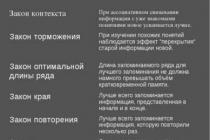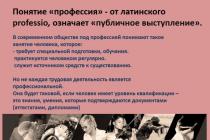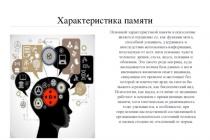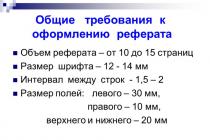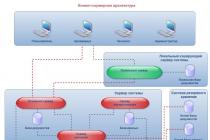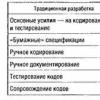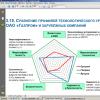To view the photos posted on the site in an enlarged size, you need to click on their reduced copies.
Regulations on the procedure for paying fees,
other obligatory payments and expenditure of funds
in SNT "Pishchevik"
Chapter 5. PAYMENTS FOR UTILITY RESOURCES,
SUPPLIED TO SNT BY RESOURCE PROVIDING ORGANIZATIONS
5.1 In accordance with the agreements concluded between the Partnership and resource-supplying organizations, SNT "Pishchevik" acts as a collective consumer of communal resources.
According to the terms of such agreements, the Partnership, as a legal entity, pays:
- received communal resource- in the amount determined in accordance with the readings of collective metering devices at the border of the balance sheet at the rates established by the relevant authorities executive power Kaliningrad region, Kaliningrad;
- utility services of resource supplying or network companies included in the tariff;
- technological losses of communal resources arising from the transfer of resources through external (in relation to the Partnership) networks, included in the tariff.
5.2 In order to reimburse the costs arising from the fulfillment of obligations to resource-supplying organizations, the Partnership concludes with citizens who have garden land plots within the boundaries of SNT "Pishchevik" on the basis of ownership or other real right, and who consume communal resources, agency agreements on reimbursement of expenses of the Partnership to pay for the consumed resource. According to the terms of these agreements, gardeners pay to the Partnership:
- accepted and consumed resource - in the amount determined in accordance with the readings of an individual meter at the border of the balance sheet at the rates established by the relevant executive authorities of the Kaliningrad region, the city of Kaliningrad;
- technological losses of resources during their transfer through the internal networks of the Partnership from the place of installation of collective metering devices to individual consumer metering devices;
- the costs of maintaining the internal networks of the Partnership (maintenance of the network and equipment; work, training, certification of personnel; security; repair; etc.);
- accepted and consumed communal resource for the general needs of the Partnership;
- compensation payment (if necessary) to cover the difference between the readings of common metering devices and the sum of the readings of all individual metering devices for gardeners.
5.3 Payment by gardeners for communal resources is made in the following order:
- for the consumed communal resource - monthly up to 10 day of the month following the settlement one, by depositing the appropriate amount, determined according to the readings of an individual meter, to the cash desk or to the settlement account of the Partnership at the rates established by the relevant executive authorities of the Kaliningrad Region and the city of Kaliningrad;
- for the consumed communal resource for the general needs of the Partnership and a compensation payment as part of membership dues or dues established for gardeners conducting gardening on an individual basis, within the time limits specified in Chapter 6 "The procedure for paying payments to SNT" of the Regulations.
5.4 Payment for the consumed communal resource used for general needs is made by the Partnership on a monthly basis until the 10th day of the month following the settlement from the operating fund. The amount of the membership fee (individual contribution) of each gardener contributed to the operating fund for these purposes is determined by an accounting calculation based on the average monthly consumption of the resource, and is distributed in equal parts to all gardeners of the Partnership. Payment is made once a year at the time of payment of membership fees (fees of individuals).
5.5 Payments received from gardeners to reimburse the costs of the Partnership for consumed communal resources are not distributed to the cash funds of SNT and are fully payable to resource supply organizations according to the formula:
Post payment. = ∑ P garden. + P tov., WherePost payment. - the total amount of payment to the supplier of the utility resource;
∑ P garden. - the amount of payments received from gardeners for the consumed resource according to the tariff established by the executive authorities of the Kaliningrad region and the city of Kaliningrad;
P tov. - payments of the Partnership, as a management company, from the operating fund, made for the consumed communal resource for general needs, as well as compensation payments to pay off the difference between the readings of common metering devices and the sum of the readings of all individual metering devices for gardeners.
5.6 Tariffs and terms of payment for consumed communal resources are the same for members of the Partnership and gardeners conducting individual gardening activities.
5.7 The gardener must monthly take readings from an individual meter and enter data into the pay books issued by the Board of the Partnership.
5.8 If the basis for calculating the payment for the consumed communal resource is the data of an individual meter, then in the receipt for payment of this resource in without fail information about the volume of the resource for which payment is made should be included.
5.9 The costs of the Partnership, as a management company, for the maintenance of internal SNT networks are paid by gardeners separately as part of membership fees and fees established for gardeners who garden individually, within the time limits specified in Chapter 6 of the Regulation.
- Agreement on the use of infrastructure facilities and other common property in SNT "Pishchevik";
- Application of the owner of the garden plot of land on voluntary withdrawal from the members of the SNT "Pishchevik";
- Agreement on the procedure for repayment of arrears in the payment of contributions and other obligatory payments to SNT;
- Certificate of absence of arrears in contributions and other obligatory payments to SNT;
- Application for payment of the cost of a share in an object (property) of common use.
How and at what rates to pay utility bills in gardens?
The principle of organizing communal services in a garden partnership is essentially the same as in an HOA. The summer resident enters into an agreement with the partnership, and it, in turn, with the supplier of resources. Each garden village has common metering devices. Based on their testimony, summer residents pay bills for electricity and water. But some gardeners live in the garden all year round, while others come only in the summer. Therefore, land owners, as a rule, also have individual meters. The readings of such metering devices must be taken and transmitted quarterly. Moreover, summer residents bear additional costs for the maintenance of engineering networks located on the territory. garden partnership. These amounts are paid along with the payment of utility bills.
Who is responsible for organizing the supply of services such as light and water to garden associations?
Nikolay Smirnov: Land owners are responsible for the provision of such services. They organize a legal entity - a partnership, cooperative, partnership: gardening, dacha or gardening, which is engaged in the management of land. It's like an HOA, but for gardeners and summer residents.
Who is the client - a legal entity or an individual summer resident?
Nikolay Smirnov: The end user of the services is the summer resident. Usually the relationship with the energy supply company is built around a partnership. The scheme is as follows: a supplying organization - a partnership - a summer resident. An exception allowed by law is when the consumer independently concludes an agreement with an energy supply organization. But such organizations are not interested in working with the consumer.
Is an electricity meter required?
Nikolay Smirnov: Mandatory if there are facilities that consume electricity. The meter is usually installed at the input of the networks of the power supply company and networks of associations. If there is no such counter, then it should have been installed before July 1, 2012. If the garden is gasified, then the meter must be installed before January 1, 2015. In most gardens of the Sverdlovsk region, they have already been installed. In the absence of a counter, the summer resident does not bear any punishment. If in apartments we pay according to the standards, then in gardening associations the entire volume consumed is distributed to all summer residents equally or in shares, as prescribed in the charter of the association.
Who owns the networks?
Nikolay Smirnov: The networks must belong to the association, and it is their duty to serve them. Legal differences: in a partnership, the networks are owned by all members of the association, in a cooperative and partnership - to the association itself.
How to find out the rates?
Nikolay Smirnov: Ask at the association board. Find out which energy-saving company supplies you with light, and on the website of the Regional Energy Commission, find the regulation that indicates the tariff for this company. The tariff setting algorithm is as follows: the company justifies the tariffs based on economic indicators and applies to the tariff regulator.
In the garden partnership there is always a big arrears in electricity. Arrears are closed at the expense of share contributions, including those whose plots are not electrified. How legal is it? It is legal to do so if such a decision has been made general meeting? And what to do if a person doubts the legitimacy of such orders?
Nikolay Smirnov: Any decision of the general meeting can be challenged in court. If we are talking about the total consumption of electricity, then the situation is legal, even if your site is not electrified. Another thing is if your board does not look at the meter readings, whether your site is electrified or not, but simply scatters the total amount for everyone, then this is illegal. If such a procedure for collecting fees corresponds to the decision of the general meeting, then such a decision must be appealed in court. This appeal has potential.
How can I check if our garden pays for electricity and gas? We learned that we are listed as debtors, and there is a threat of disconnection. At the same time, gardeners themselves pay.
Nikolay Smirnov: For review, please ask the board for financial documents. If the board does not provide such information, then you have the right to demand it in court. Your association will be the defendant in your claim.
Bought a garden at NST. There is no electricity in the area. How can I carry it out? Can I attach to an existing pole and just put up my counter?
Nikolay Smirnov: You have no right to do this on your own. There is a penalty for this. Contact the board of your association. It is obliged to run the cable and install the meter, seal it, take readings. This service is provided at the expense of share contributions, unless otherwise provided by the charter. If the board refuses to take these actions, you have the right to challenge its inaction or refusal in court.
Who decides whether to order garbage collection or not? Our chairman of the partnership decided it personally. The car is very expensive. Can he order this service without holding a general meeting?
Nikolay Smirnov: No, he can not. The cost estimate is established and approved by the general meeting and in the presence of all members of the partnership.
SNT "Joy", Verkhnyaya Pyshma. The chairman of the garden demands that everyone put in two tariff meters. Is he right?
Nikolay Smirnov: It is legal if it is established by the decision of the general meeting. If not, then the chairman cannot make such a request to you.
What is SNT? It is often talked about now. Our collective garden has existed for 50 years. Do you need to change anything now?
Nikolay Smirnov: As I understand it, we are talking about reorganization. In the Federal Law of April 15, 1998 No. 66-FZ “On horticultural, horticultural and country non-profit associations Citizens” establishes the obligation of all gardening partnerships and cooperatives that were created in accordance with the law on cooperation in the RSFSR to reorganize into one of the organizational and legal forms provided for by the new law. The fulfillment of this obligation was determined 5 years from the date of entry last law by virtue of. Your garden needs to be reorganized if the legal form does not comply with today's legislation. The question is difficult. First of all, convene a general meeting to resolve it.
Copying any materials from the site is allowed only if you indicate the source with an active link to the site
I am the chairman of the SNT. The general meeting of SNT members adopted a decision on seasonal energy supply for gardeners. from 2013 to 2015 about 70 families of gardeners began to actively build houses and permanently reside in SNT, who, with the permission of the meeting, were provided with a constant power supply. the power of the substation is only 100 kW. This year, 20 more applications for year-round power supply were received. The latter was refused due to substation overload. At the general meeting of SNT members, this issue was considered and a decision was made to purchase a substation of greater capacity by gardeners who want to have a constant power supply, and installation work accomplish through gardening. One of these gardeners wrote a letter to the housing inspectorate for gardening complaining about the blackout in winter period of his residential building., The Housing Inspectorate, referring to Resolution 354, requires the gardener to be provided with electricity, despite the submitted minutes of the SNT meetings with the decisions made on seasonal energy supply and the submitted certificates of the absence of contracts and a personal account with the energy supply organization of the complainant. Are the actions of the housing inspectorate legal? SNT is not a utility provider subject of activity under the charter of SNT-horticulture.
Expert Answer
When SNT chairmen say they don't have enough capacity, they have to provide calculations. Each owner of a land plot on the territory of SNT has the right to use common property - a transformer and power lines. No one has the right to refuse him this! After all, he is legally a co-owner of the common property! He has the right to use infrastructure, including electricity. Any refusal of the management or the general meeting is a violation of the law. The applicant has the right to appeal this in court ... The energy property of SNT, as a legal entity, does not start from the transformer, but from the point of connection to the power line. It is necessary to determine the total power consumption of a legal entity - SNT. Let's say it exceeds the one that your transformer has, and you need to buy a new one. Next, you need to contact the grid organization to which you are connected to conclude an agreement for the provision of services for technological connection. By virtue of clause 2 of section 1 of the Rules for the provision of public services to owners and users of premises in apartment buildings and residential buildings approved by Decree of the Government of the Russian Federation of 05/06/2011 N 354, the utility service provider is a legal entity, regardless of the legal form or individual entrepreneur"providing utility services to the consumer. Taking into account clauses 8, 9, 10 of section 2 of the Rules, the contractor can be a managing organization, a homeowners association, a housing construction, housing or other specialized consumer cooperative, a resource supply organization. According to clause 2 of section 2 of Rules N 354 under public services means the activities of the contractor in supplying consumers with any communal resource individually or 2 or more of them in any combination in order to ensure favorable and safe conditions Russian Federation dated 14.02.2012 N 124. From the above norms, it follows that the partnership is the executor of the public electricity supply service for citizens-owners of residential buildings, purchases electricity from the guaranteeing supplier under the power supply agreement to provide the public electricity supply service to citizens. Paragraph 48 of the Basic Provisions for the Functioning of Retail Markets electrical energy(approved by Decree of the Government of the Russian Federation of 04.05.2012 N 442, the right of the supplier of last resort is established in connection with the occurrence of circumstances specified in the Rules for the complete and (or) partial restriction of the mode of consumption of electric energy, approved by Decree of the Government of the Russian Federation of 04.05.2012 N 442 to initiate in accordance with the established procedure, the introduction of a complete and (or) partial restriction of the mode of consumption of electrical energy under the contract.. Considering the foregoing, your SNT did not initiate the restriction of the supply of electrical energy, and therefore, it did not have a real opportunity to provide the owners of residential houses of the partnership with electricity and water supply services due to their absence.
D-2-6658/12
SOLUTION
IN THE NAME OF THE RUSSIAN FEDERATION
under the secretary Savchenko O.N.,
examined in open court a civil case under the claim of the Horticultural non-profit partnership «» to Strizhakova YA.V. on compulsion to conclude an energy supply contract,
SET UP:
Chairman of the Board SNT «» FULL NAME6 filed a lawsuit against Strizhakova YA.V. on compulsion to conclude an energy supply contract, referring to the following circumstances:
In the course of electrification of SNT “01/01/2008, an agreement No. was concluded with the guaranteeing supplier OJSC “” for the supply of electricity with a voltage of 10,000 volts and a delivery point was agreed. According to paragraph 2.2 of this agreement, SNT purchases electricity in order to provide utility services to the final recipients - owners of personal garden houses and pay off losses in their networks, i.e. in accordance with the Decree of the Government of the Russian Federation of 23.05.2006 No. 307, the plaintiff is a utility service provider. To provide personal garden houses with electricity from the point of supply, a transformer substation and power lines were built for targeted contributions from gardeners. Thus, the electrical networks of the SNT are jointly owned by the gardeners who have made earmarked contributions and must be maintained at the expense of these gardeners. Accordingly, the payment for electricity for gardeners consists of the state tariff and an additional payment to the partnership to compensate for losses in the lines, the maintenance and maintenance of these lines. This fee must be paid through the cash desk of the partnership. The legitimacy of the above procedure is confirmed by paragraph 6 "Energy Supply" of the Civil Code of the Russian Federation, Decrees of the Government of the Russian Federation No. 530 (p. 3), No. 442 (p. 3), No. 307, clarifications of the Federal Antimonopoly Service of Russia dated 01.29.2008, letter "", entered into legal force by the decision of the Taganrog City Court dated 09.06.2012. in case no. In order to streamline the consumption of electricity by gardeners and ensure payments in the established amounts and on time, 13.09.2011. the general meeting of the partnership adopted a number of decisions, in particular, in order to prevent unmetered electricity consumption, it was decided to start installing external control electricity meters and conclude energy supply agreements with the owners of electrified sites. According to paragraph 4 of the Rules for the provision of public services to citizens, approved by Decree of the Government of the Russian Federation of May 23, 2006 No. 307, consumers of electricity are required to have contracts with utility service providers. In addition, Article 21 of the Federal Law of April 15, 1998 No. 66-FZ “On Horticultural, Gardening and Dacha Non-Commercial Associations of Citizens” establishes that the general meeting has the right to take into consideration and resolve any issues of the partnership’s activities, and in accordance with Part 2 of Art. .19 of this Law, a member of the partnership is obliged to comply with the decisions of the general meeting, as well as pay membership and other dues, taxes and payments in a timely manner. General meeting on 13.09.2011 the text of the energy supply agreement was approved. Thus, the contract bears the characteristics of a public contract, the same for all members of the SNT. During the implementation of the decisions of the general meeting of 13.09.2011. member of the partnership Strizhakova Ya.V. On 03/20/2012 and 04/16/2012 notifications and proposals to conclude an agreement were sent, but in response an insulting letter was received with illiterate and illegal, i.e. obviously unrealistic requirements. In the period after 03/20/2012, as a result of a number of appeals to law enforcement agencies and the court, a number of controversial issues were clarified, and on 08/07/2012 Strizhakova Ya.V. the proposal to conclude an energy supply agreement was re-sent, but on 14.08.2012. she was refused, which indicates a clear desire to evade the conclusion of the contract.
The plaintiff asks the court to compel Strizhakova Ya.The. conclude an energy supply agreement with SNT "FULL NAME3".
At the hearing the chairman of the board SNT «FULL NAME3» Udovichenko AND.The. claims supported, submitted written additions to substantiate claims. He explained that the current legislation, in particular paragraph 10 of the Rules for the provision of utility services to owners and users of premises in apartment buildings and residential buildings, approved by Decree of the Government of the Russian Federation of 05/06/2011 No. 354, provides for two options for power supply to citizens. The first is direct connection to networks energy supply organization, and the second is the receipt of electricity through a utility service provider. For the first option, paragraph 2 of Art. , as well as paragraphs 72, 73, 74 of the Basic Provisions for the Functioning of Retail Electricity Markets, approved by Decree of the Government of the Russian Federation of May 6, 2011 No. technical requirements power receiving device located in the area of activity of the last resort supplier or power supply (power supply organization, that is, a transformer substation and other equipment. Since the defendant does not have its own substation for connecting a power line with a voltage of 10,000 volts, in this case, according to paragraphs 3 and 4 of Art. and the corresponding the provisions of the Rules and Regulations are not applicable. SNT "FULL NAME3" does not sell electricity, therefore, according to paragraph 2 of the Rules, it is not a resource supply organization and, accordingly, the provisions of Resolution No. are not applicable to it. SNT "FULL NAME3" provides electricity to gardeners and therefore, in accordance with paragraph 2 of the Rules is the contractor of utilities. This is the subject of the contract with OAO Energosbyt Rostovenergo, and contract No. 1877 is brought into full compliance with the changed legislation by concluding additional agreements. . The concept of "utility service provider" is defined by paragraph 2 of the Regulations and paragraphs 2, 10 "b" of the Rules - a legal entity, regardless of the legal form, including a non-profit association. The right of SNT "FULL NAME3" to be a utility services provider is enshrined in paragraph 8 of the Rules. The existence of an agreement when providing electricity through a utility service provider is established for a citizen by subparagraph “b” of paragraph 10 of the Rules, and paragraph 16 of the rules clarifies - contracts in writing. The provisions of the draft contract proposed by the defendant do not contradict the current legislation. In addition, in accordance with Article 21 of the Federal Law “On horticultural, horticultural and dacha non-profit associations of citizens”, the right of the general meeting to take into consideration and resolve any issues related to the suppression of theft of electricity, including by concluding agreements, the text of which is approved by the general meeting, is the same and mandatory for all gardeners. The implicit and other actions of a citizen in accordance with the Regulations and Rules relate to relationships with resource-supplying organizations. To ensure the supply of electricity, SNT "FULL NAME3" has two transformer substations, high and low voltage networks, related equipment, built by order of SNT for targeted contributions from gardeners, which is confirmed by technical documentation, contracts and business correspondence. Electricity used by SNT for general business needs, including pumping station, is accounted for separately and paid from membership fees, which is confirmed by technical documentation, power consumption sheets, accounting documentation. Electricity supplied from a separate substation through separate networks to the personal gardeners' houses is accounted for separately and paid by the owners of the houses. Networks are the shared property of gardeners who have submitted earmarked contributions, since, according to Art. ownership of property arises only for those citizens who have created or acquired this property. Since SNT, in addition to the rights and obligations established by paragraphs 31 and 32 of the Rules, to take testimony, calculate and recalculate the amount of the fee, etc. still has the right to charge a surcharge for losses in networks and maintenance of lines, then the gardener is obliged to pay for electricity either through the cash desk of the partnership or according to the receipt of the partnership, and this does not violate anyone's rights, and the defendant's refusal to conclude an agreement and pay for electricity in a different manner violates the requirements of the law and the decision of the general meeting of members of the partnership. The references of the defendant and her representative to the violation of the procedure for holding a general meeting are considered unreasonable, since holding a meeting in the form of a meeting of authorized persons was provided for by the Charter as amended in 2003, and guided by Article 21 of the Federal Law “On horticultural, horticultural and dacha non-profit associations of citizens”, the general meeting on August 21. 2011 increased the number of authorized persons to 35, 24 of whom were present at the meeting on 13.09.2011.
To the questions of the court, the chairman of SNT “FULL NAME3” explained that, in his opinion, there were no differences in the procedure for calculating payment according to the old and new rules for the provision of public services, so there was no need to develop new project agreement with the defendant. He believes that, if necessary, the court may apply the requirements set out in the resolutions of the Government of the Russian Federation to the terms of the contract and clarify the text of the contract proposed by the plaintiff.
defendant Strizhakova Y.The. did not appear at the court session, sent her representative and submitted written objections to the claim, indicating in them the following:
Contract No. dated January 1, 2008, to which the plaintiff refers, does not meet the requirements of the regulatory legal acts of the Russian Federation that have entered into force and requires updating. indicated by the plaintiff Decrees No. 307 and No. 530 have become invalid, and for these reasons the contract proposed by the plaintiff cannot be concluded. At present, samples of contracts recommended for conclusion are posted on the website of YuZMO OJSC "". SNT "FULL NAME3" does not have the status of a utility services provider and a network organization. According to clause 1.3 of the Charter, the implementation of public services is not the goal and task of the partnership, SNT acts on the basis of the Charter and is not an economic entity with independent economic interests that are different from the interests of members of the SNT, and acts in property turnover not in its own interests, but in the interests of members SNT. According to the rules of non-discriminatory access (clause 6 of the Decree of the Government of the Russian Federation No. 861 dated December 27, 2004), owners and other legal owners of electric grid facilities through which it is indirectly connected to electrical networks a grid organization, a power receiving device of a consumer, is not entitled to prevent the flow of electrical energy through their facilities for such a consumer and demand payment for this. The specified owners and other legal owners of electric grid facilities through which the consumer's power receiving device is indirectly connected to the grid organization's electric grids are entitled to provide services for the transmission of electric energy using the electric grid facilities belonging to them after the tariff for electric energy transmission services is established for them. In this case, the provisions of these Rules provided for grid organizations shall apply to their relations on the transmission of electric energy. Consumers of services indirectly connected to electric networks pay for electric energy transmission services in accordance with guidelines, approved by the federal executive body in the field of state regulation of tariffs. SNT "FULL NAME3" receives electricity not only for the owners of private houses and repayment of losses in their networks, but also to power an electric deep pump, to supply irrigation water to the plots of SNT members, and to carry out other household work. In accordance with Article 4, clause 2 of the Federal Law “On horticultural, gardening and country non-profit associations of citizens” and clause 1.7 of the Charter of SNT “FULL NAME3” in a horticultural non-profit partnership, public property acquired or created by such a partnership at the expense of earmarked contributions is joint the property of its members. Thus, the electrical networks of the SNT cannot be the property of only members who have made earmarked contributions and must be maintained at the expense of all members of the SNT. However, until now, the governing bodies have not filed claims against members of the partnership who did not make timely earmarked contributions for the electrification of SNT, which is a violation of the law and the Charter of the partnership, and at the same time, the owners of electrified garden houses are forced to pay for the maintenance and maintenance of networks, and the maintenance and maintenance, to put it mildly leaves much to be desired. In addition, SNT does not have a license to provide services for the maintenance and maintenance of electric networks, it does not have registration of the right to this network in the Unified State Register of Rights to Real Estate. SNT, by virtue of its status as a non-profit organization, does not have the right to conclude a public contract, including an electricity supply contract (energy transmission, energy sales), in accordance with article. Energy sales sells energy not just to consumers, but to consumers of electricity, and they still need to become, having fulfilled certain conditions. Electrical networks - a linear engineering object, a real estate object, and must be registered in accordance with the law, if it is not registered in the prescribed manner, then it does not exist. The rules of non-discriminatory access imply that technical connection is always made to the networks of the network organization. The goals and objectives of creating a SNT differ from the goals of creating a network organization. In this case, SNT, as a "contractor of utility services", and in fact transmission services, receives not only the rights of the network organization, but also obligations. Firstly, it becomes a public organization with the obligation to conclude an agreement with any person who applies to it, and even join it for 550 rubles. Secondly, non-profit organization becomes a public organization, which cannot comply with the law. Thus, it cannot be a SNT grid organization and cannot connect anyone, much less disconnect in the prescribed manner, although it can temporarily suspend the supply of electricity for non-payment, but in compliance with the procedures: a written double notification indicating the amount of debt for electricity consumed, and not for the protection of the territory, for example, indicating bank details And so on. It turns out that SNT and a network organization, and energy sales, and credit organisation rolled into one - and all this without a license, control and past the law. True, in terms of control, they usually refer to the audit commission. The assertion that the payment must be made through the cash desk of the partnership is unfounded and violates the defendant's rights, and she believes that no one's rights will be violated if the consumed electricity is paid through the bank.
Conducted on 13.09.2011 the meeting was not general. The leadership of SNT "FULL NAME3" did not attempt to convene a general meeting or hold a meeting by poll. At the meeting on September 13, 2011 24 people were present. At the time of the meeting, they could not perform the functions of authorized persons, because, according to Art. Clause 3 of the Civil Code of the Russian Federation, Art. 17 FZ-66, clause 3.5 of the Charter of the SNT "FULL NAME3" changes and additions to the constituent documents, which is the Charter of the partnership, come into force from the moment they are state registration. Registration of amendments and additions concerning the procedure for choosing authorized representatives was made on September 19, 2011; the regulation on authorized representatives specifying their functions has not yet been developed. In addition, a number of other issues related to finances, elections and which are within the competence of the general meeting were decided at the meeting. The text of the agreement, approved on 13.09.2011. offered to the respondent in different editions. In both editions there are points on which, in her opinion, coordination is necessary. At a meeting of 24 people on September 13, 2011, it was decided to install remote meters with the non-admission of members of the commission and the chairman to control and inspect the state of electrical networks and meters. She never refused permission to control and inspect electrical networks and a meter, however, a meter was installed at the connection point of her garden house, which contradicts the decision of the meeting of 09/13/2011. According to Art. citizens are free to conclude a contract.
Neither she nor her representative refused to conclude an energy supply agreement, their side asks for agreement on the text of the agreement. You can't force someone to do something they won't refuse. In addition, according to paragraph 1 of Art. , in the case when a citizen using energy for domestic consumption acts as a subscriber under an energy supply agreement, the agreement is considered concluded from the moment the subscriber is first actually connected in the prescribed manner to the connected network. In accordance with Art. and Art. connection of the subscriber to the connected network is considered as an acceptance. Her garden house was connected on 19.04.2006. specialist SNT - FULL NAME11. The chairman of the board of SNT "FULL NAME3" misleads the court, arguing that the imposed text of the energy supply agreement is public. According to Art. SNT cannot conclude public contracts, since it is not commercial organization. Previously, disagreements on contract No. were agreed, in this contract three points were changed and signed by a representative of the SNT. In this regard, the imposed text cannot be considered the same for all members. In addition to everything mentioned at the meeting on 13.09.2011. we are talking about gardeners, and the contract is concluded with members of the SNT, therefore it is not clear for whom, for what and by whom this agreement was developed and offered (to gardeners who farm individually or members of the SNT). Chairman audit commission FULL NAME7 claims that the text of the agreement was developed by lawyers of YuZMO OJSC Rostovenergo specifically for SNT FULL NAME3, and YuZMO OJSC FIO12 claims that this is not part of their functions.
At the hearing the representative Strizhakova Ya.The. - Ivanov V.N. supported the written objections of the respondent. He explained that the defendant does not refuse to conclude an electricity supply contract with the plaintiff, but believes that the contract proposed by the plaintiff cannot be concluded, since it does not meet the requirements of the current legislation, a draft contract should be drawn up in accordance with section III rules for the provision of public services, approved by Decree of the Government of the Russian Federation of May 6, 2011 No. 354, and recommendations for such contracts published on the website of the energy supply organization. He is ready to assist the SNT board in drafting the treaty. The plaintiff's references to the decision of the general meeting regarding the text of the agreement are considered unfounded, since, in his opinion, the meeting was unauthorized due to the lack of a quorum and the absence of registered changes in the Charter of the SNT regarding the procedure for holding meetings of authorized persons.
The defendant's representative filed a motion to accept a counterclaim to challenge the decisions of the general meeting of members of SNT "FULL NAME3" dated 13.09.2011, which was rejected by the court and the applicant was explained the right to file an independent claim.
The representative of JSC "" Denisenkov A.G. submitted a written explanation of the case, the decision asks to take at the discretion of the court. In the explanations, in particular, he indicated that the power supply of SNT “FULL NAME3” is carried out on the basis of an energy supply agreement for general electricity metering, established not at the border of the balance sheet of the power grids, therefore, in accordance with clause 4.5 of agreement No. 1877 of 01.01.2008. the amount of supplied electricity is corrected for the amount of standard losses arising in the network section from the boundary of the balance sheet to the installation site of the measuring instrument. According to the reference data, no-load losses in power transformers are determined, which are included in the power supply contract and are added monthly to the consumption of estimated electricity meters. In addition, in the process of transmitting electricity from a common meter (delivery point) to horticultural plots, losses occur in power lines, which are taken into account by a common meter. The magnitude of these losses can only be determined by a specialized organization. SNT "FULL NAME3" constantly forms a debt for consumed electrical energy, as of 31.10.2012. the debt amounts to 222,406 rubles, and from time to time the amount of the debt is collected through the arbitration court. According to Art. the owner bears the burden of maintaining his property, therefore, horticultural associations of citizens must maintain and maintain their electrical networks and transformers, as well as pay for electricity losses in them, etc., at the expense of members of the horticultural association. Costs for Maintenance, current and major repairs, periodic testing of electrical installations and lines, training and certification of personnel, maintenance of personnel servicing electrical installations are paid at the expense of funds collected from members of horticultural societies and are not included in the tariff. In accordance with paragraph 6 of the Rules for the provision of utility services to owners and users of premises in apartment buildings and residential buildings, approved by Decree of the Government of the Russian Federation No. reimbursable contract, containing provisions on the provision of public services. An agreement containing provisions on the provision of public services may be concluded with the contractor in writing or by the consumer performing actions indicating his intention to consume public services or the actual consumption of such services (conclusive actions). Paragraph 19 of the Rules establishes that it should include an agreement on the provision of public services, including an electricity supply agreement.
After listening to the explanations of the representatives of the parties, having studied the materials of the case, the court recognizes the claims as not subject to satisfaction on the following grounds:
In itself, the plaintiff's demand to the defendant to conclude an agreement for the provision of utility services for electricity supply is legal, since the defendant's obligation to conclude such an agreement follows from paragraphs 6, 10, 19 of the Rules for the provision of utility services to owners and users of premises in apartment buildings and residential buildings, approved by a government decree RF No. 354 dated 05/06/2011, and such an obligation is not disputed by the defendant. The objections of the defendant with allegations that SNT "FULL NAME3" does not own electrical networks, is not a utility services provider, and the energy supply contract dated 01/01/2008 No. 1877 does not comply with applicable law, are caused by the lack of information about additional agreements to the power supply agreement, on the commissioning of electrical installations with the purpose of power supply of SNT "FULL NAME3" and an incorrect interpretation of the current legislation and the Charter of SNT "FULL NAME3" regarding the goals and objectives of the activities of horticultural non-profit associations of citizens. The Federal Law "On horticultural, horticultural and dacha non-profit associations of citizens" establishes that a horticultural association of citizens (a horticultural partnership, a horticultural cooperative) is a non-profit organization established by citizens on a voluntary basis to assist its members in solving common social and economic problems of gardening. In such an association of citizens, public property is property (including land plots) intended to provide, within the territory of a horticultural, horticultural or country non-profit association, the needs of members of such a non-profit association in the passage, travel, water supply and sanitation, electricity, gas supply, heat supply, protection, organization of recreation and other needs (roads, water towers, common gates and fences, boiler rooms, children's and sports grounds, garbage collection sites, fire fighting structures, etc.). Paragraph 2 of Article 4 of this Law establishes that in a horticultural non-profit partnership, common property acquired or created by such a partnership at the expense of earmarked contributions is the joint property of its members. Common property acquired or created at the expense of a special fund formed by decision of the general meeting of a horticultural, horticultural or dacha non-profit partnership is the property of such a partnership as a legal entity. Special Fund make up the introductory and membership fee members of such a partnership, income from its economic activity, as well as funds provided to a horticultural, horticultural or dacha non-profit partnership in accordance with Articles 35, 36 and 38 of this Federal Law, other receipts. Thus, the power supply of garden plots is one of the tasks horticultural partnership, for the implementation of which citizens created both the partnership itself and common property. The power supply of garden plots is carried out for personal household needs, electricity is paid by the members of the partnership at the tariffs for the category "population" and through the partnership, and accordingly, the citizens - owners of garden plots in this case are consumers, and the gardening partnership is the executor of utility services for electricity supply.
At the same time, the content of the contract proposed by the plaintiff for conclusion cannot be recognized as corresponding to the current legislation, therefore the court cannot force the defendant to conclude such a contract. In terms of content, this agreement does not comply with paragraph 19 of the Rules for the provision of utility services to owners and users of premises in apartment buildings and residential buildings, approved by Decree of the Government of the Russian Federation No. % of the amount of electricity used to pay for losses and maintenance of electrical networks and transformers (clause 2.2.4), which does not meet the requirements of the mentioned Rules, which entered into force on September 1, 2012. If, before the entry into force of the new Rules, the payment for the general house needs of an apartment building (in this case, for the general electricity of SNT, including losses in the partnership’s power grids) was distributed in proportion to the readings of individual metering devices, then from September 1 it is distributed proportionally total area occupied premises. The new Rules divide the payment for each utility service into two parts. The first is a payment for individual consumption according to the readings of metering devices or according to the standards, if the devices are not installed. The second is a payment for common house needs, which is determined by common house appliances or by standards if there are no appliances. Thus, the receipt for payment should contain two columns: indoor consumption (in this case, consumption in the garden) and consumption of utilities for general house needs (in this case, total electricity). Such a division is designed to ensure transparency of calculations and accessibility for citizens to understand the meaning of paying for general house needs (payment for general electricity), which should encourage savings, real work on energy saving, since it creates an incentive to reduce overall consumption. The payment for general communal services (payment for general electricity) under the new Rules is not subject to recalculation due to the temporary absence of the consumer in his apartment (in his garden plot), and this is quite fair, since the consumption of general electricity and losses in SNT networks in this case is far from are always associated with the consumption of electricity by a specific consumer, and as already noted, such losses are caused by the idling of the transformer and losses on lines to garden plots. Temporary absence is the basis for deducting accruals only in apartments (in this case, in garden plots) where metering devices are not installed, i.e. now general house needs (general electricity) are paid in any case. In connection with the change in the structure of payments and the need to ensure transparency of accruals for housing and communal services, from September 1, 2012, utility service providers should introduce new forms of receipts, in relation to the variants of payment documents provided for by the Rules. Uniform deadlines for taking readings from individual and common house meters have been established. The consumer is obliged to take readings of an individual meter from the 23rd to the 25th day of the current month and not later than the 26th day to transfer it to the utility service provider. However, these indications can also be taken by representatives of the utility service provider (persons authorized by him), and this fact must be fixed in the contract, decision general meeting of owners of residential premises (in this case, by the decision of the general meeting of members of the gardening partnership).
Thus, the plaintiff should hold a general meeting of members of the SNT "" on the introduction of the procedure for paying for utility services of electricity according to the new Rules approved by Decree of the Government of the Russian Federation No. taking readings from individual metering devices and the content of contracts, and then offering consumers of this utility service to conclude contracts that comply in content with the requirements of the new Rules. It should be noted the groundlessness of the statements of the representative of the plaintiff - the chairman of the board of SNT "FULL NAME3" that between the plaintiff and the defendant there is no contractual relations. By virtue of paragraph 1 of Art. in the event that a citizen using energy for domestic consumption acts as a subscriber under an energy supply agreement, the agreement is considered concluded from the moment the subscriber is first actually connected in the prescribed manner to the connected network. In accordance with Art. with the consent of the energy supplying organization, the subscriber can transfer electricity to the sub-subscriber, but the essence of the legal relationship does not change and the sub-subscriber is also subject to the rules of Art. . In addition, the representative of the energy supply organization correctly indicates that, in accordance with clause 6 of the Rules approved by Decree of the Government of the Russian Federation No. by the consumer of actions indicating his intention to consume public services or the actual consumption of such services (conclusive actions).
The foregoing indicates that the dispute under consideration is caused by the misconceptions of the parties regarding the requirements of the current legislation in legal relations to provide garden plots with electricity by the horticultural partnership. The parties to the case should take into account what is stated in this decision and take measures to develop a new text of the contract for the power supply of the garden plot and conclude it, and if the defendant refuses to conclude an agreement that meets the requirements of the current legislation in content, or submit a protocol of disagreements, the parties in the case have no obstacles to going to court with claims to resolve pre-contractual disputes and compel the conclusion of a contract in accordance with articles , .
Taking into account the above, guided by Article.Article. - , court
DECIDED:
The claims of the Horticultural Non-Commercial Partnership “for compelling Strizhakov Ya.V. conclude the proposed SNT "FULL NAME3" contract energy supply to leave without satisfaction.
The decision can be appealed to the Rostov Regional Court through the Taganrog City Court within a month from the date of manufacture of the decision in final form.
Federal Judge Yadykin Yew.N.

